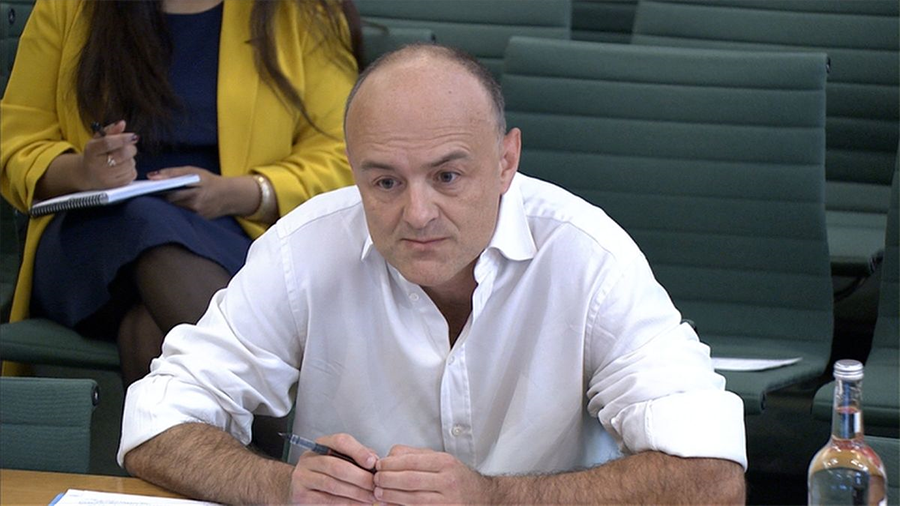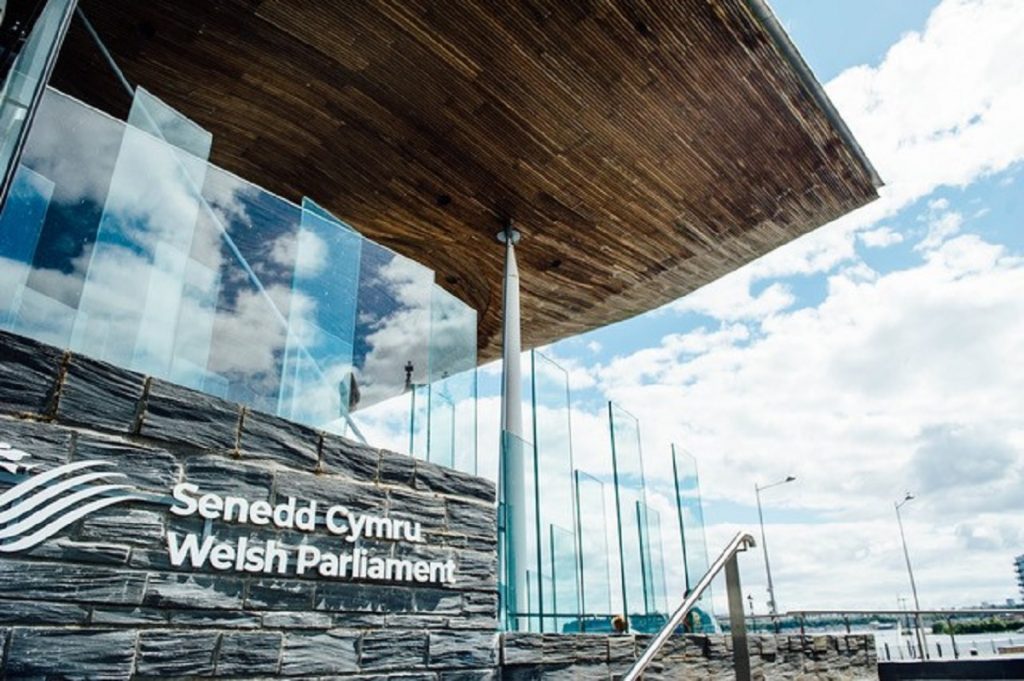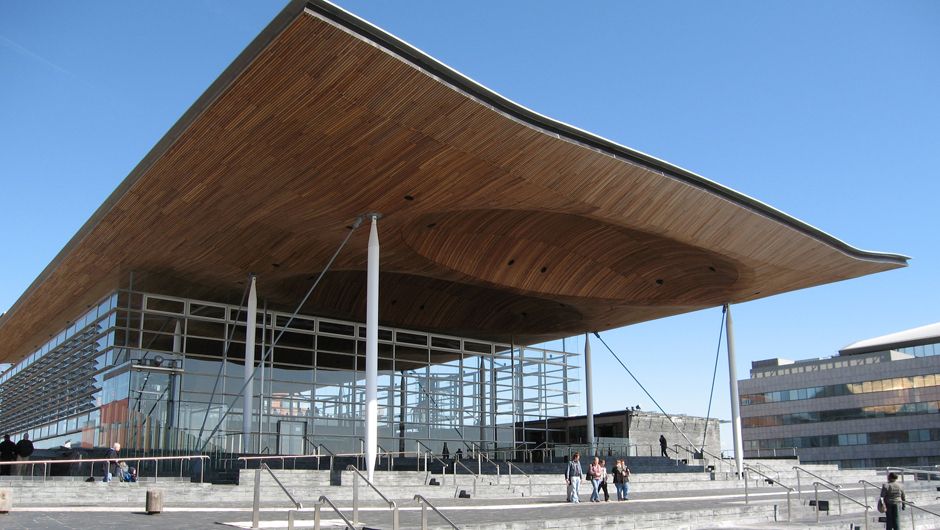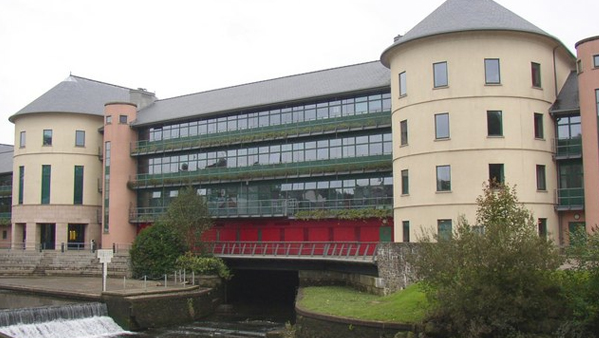Politics
Cummings slates Government, Johnson, and Hancock

“THE TRUTH is that senior ministers, senior officials, senior advisers like me fell disastrously short of the standards that the public has a right to expect of its Government in a crisis like this.
“When the public needed us most, the Government failed.
“I would like to say to all the families of those who died unnecessarily how sorry I am for themistakes that were made and for my own mistakes at that.”
Dominic Cummings’ opening statement to the Covid-19: Lessons Learned Committee of the House of Commons is an attention-grabbing one.
The rest of his evidence was no less damning of Westminster’s response in the early days of the pandemic.
It revealed a government in which discussions at Cobra meetings, supposedly the most secure and confidential of briefings, were routinely leaked to the media. It showed a PM who went away on holiday as the crisis broke. The Government failed to follow the logic of the science presented to it and took weeks to understand the pandemic’s capacity to overwhelm the NHS.
And – as Mr Cummings said – ‘unbelievably’ we have a government whose response to the crisis at a critical time was put on the back burner to deal with a complaint by the PM’s fiancé about a disobliging story about her dog.
CUMMINGS HAS PAPER TRAIL
Suppose Mr Cummings, like so many others, made his assertion without a paper trail. In that case, his remarks could be interpreted as so much self-serving nonsense and a study in revenge. However, he has the paperwork, the email trail, the journal entries, the secret WhatsApp chats to back up his account.
His story got extra heft by his clear expression of regret that he had not obtained an independent view of the Government’s data earlier. When he did deliver data to those outside Downing Street, the extent of the crisis became apparent.
He made it clear the Government could have got better insight sooner and taken steps towards lockdown six weeks before it did.
The Prime Minister maintained ‘this new swine-flu thing’ was less of a risk than economic damage from overreaction throughout February, even as infections and deaths escalated.
However, the data was wrong. According to Mr Cummings, had the models been checked against live data from Intensive Care Units concerning Covid infections, it would’ve been evident the models presented to the Government and upon which it based its decisions were totally flawed.
NO PLANNING
In a withering assessment, Dominic Cummings said the more people criticised the plan, or lack of one, the more people on the inside believed their critics lacked knowledge.
If there’d been proper scrutiny and interrogation of what Ministers were being told, “we would have figured out at least six weeks earlier that there was an alternative plan”.
The original plan, he said, was “complete garbage”.
More than that, the Department of Health’s ‘plan’ amounted to no more than a press release.
The Department of Health was ’a smoking ruin’, he claimed. There was no plan for shielding, support, emergency procurement. The Department of Health failed to appreciate the size of the crisis and stuck to its normal procurement channels until it was almost out of PPE. The Department of Health refused to buy ventilators because their price had risen.
He suggested a proposal – seriously advanced for consideration – that people hold the equivalent of ‘chickenpox parties’ was met with disbelief by scientists who had to point out that chickenpox was not killing hundreds of thousand people worldwide.

HANCOCK BRANDED A LIAR
Dominic Cummings turned personal fire onto Matt Hancock, who remains the Secretary of State for Health.
He accused Mr Hancock of lying and that the Health Secretary’s conduct merited his instant dismissal.
He had earlier mentioned the Health Secretary’s denial that the Government pursued a herd immunity policy that formed a vital element of the Government’s then-approach.
Dominic Cummings said Matt Hancock “for lying to everybody in multiple occasions in meeting after meeting in the cabinet room and publicly”.
Crucially, Mr Cummings said the Cabinet Secretary (Mark Sedwill, the UK’s most senior civil servant) told him and the Prime Minister that he did not trust Matt Hancock to be truthful. He had notes of the meeting in which that remark was made.
Mark Sedwill, Mr Cummings claimed, told Boris Johnson that the cabinet system was not set up to deal with a minister like Matt Hancock, who – he alleged Mr Sedwill said – repeatedly lied in meetings.
He alleged Mr Hancock deliberately delayed implementing a proper track and trace system to meet an arbitrary testing target.

JOHNSON DUCKS THE QUESTIONS
As the Committee took a break, Prime Minister’s Questions opened in the House of Commons.
Asked about Dominic Cummings’ evidence, the Prime Minister failed to deny key allegations from it when asked by opposition leader Kier Starmer.
Instead, Boris Johnson deflected the questions by referring to a public inquiry. Mr Johnson refused to give a date for that inquiry’s start.
Mr Johnson seemed to decide poking the hornets’ nest would invite further disclosures from Mr Cummings, more damning than the testimony already given.
The picture Mr Cummings painted was chaos at the heart of Government, institutional complacency, lack of expertise in the key departments, and – tellingly – a Prime Minister and Cabinet with only a tenuous grasp on the urgency of the situation.
Given a chance to plan for different scenarios and allocate adequate resources, the Prime Minister and other key ministers preferred to look on the sunny side, hope for the best, and expect something to turn up.
The PM took his opportunity to have a holiday.
Nothing Mr Cummings said was more telling than his revelation that the reason the UK did not enter lockdown sooner was the Government – including the civil service – did not have a plan. The part of the civil service supposed to deal with civil emergencies couldn’t cope because it lacked expertise in the response it was supposed to handle. Planning was always based on a peak of the virus twelve weeks in the future from the date of any meeting.
The pandemic’s first wave peaked in late April. The Government, as late as March 14, planned for a peak in June.
JOHNSON LIKE THE MAYOR IN JAWS
Mr Cummings’ account of a shielding plan drawn up over two all-night brainstorming sessions after the lockdown’s announcement was hair-raising. At the eleventh hour it emerged the UK hadn’t taken account of vulnerable groups’ protection.
As the pandemic raged and demands made to put a brake on overseas travel, Dominic Cummings claimed the PM didn’t want one. He painted a picture of a media-obsessed Boris Johnson swayed by press campaigns against taking preventative action.
Mr Cummings explained Mr Johnson’s behaviour was like the Mayor’s in Jaws. He wanted to keep the beach open, even as the shark ate the swimmers.
On a broader topic, Dominic Cummings criticised a ‘crackers’ political system that allowed people like him and Boris Johnson to exercise such power during an emergency when they were unqualified to deal with one.
Mr Cummings’ tarter observations about the ability of the UK’s political parties included a stinging attack on how political parties select and support their leaders.
To summarise his view: he suggested the problem with the political system in this country is that voters had a choice between people like Jeremy Corbyn and Boris Johnson at the last election.
He concluded from that statement that the parties need to look at themselves to find out why they put ‘that sort of person’ forward for office.
That’s an issue beyond the current inquiry’s scope. ‘Teflon Al Johnson’ will be very grateful it is after Wednesday’s hearing.
News
First step towards council tax and business rate reform

MAJOR reforms to council tax and business rates have cleared the first hurdle in the Senedd.
MSs backed the general principles of the local government finance bill, which would introduce a five-year cycle for council tax revaluations from 2030.
The bill would lay much of the groundwork for Welsh Government proposals to redesign council tax, with current bands based on property values from 2003.
It would also increase the frequency of business rates revaluations from five to three years.
Rebecca Evans told the Senedd the bill forms a vital part of the Welsh Government’s wider programme of local tax reform.
Wales’ finance minister explained the bill would enable ministers to modify business rate relief exemptions and the multiplier to support policy priorities.
John Griffiths outlined the local government committee’s stage-one report recommendations aimed at improving the bill and guarding against unintended consequences for taxpayers.
Mr Griffiths explained that the bill provides a framework for future policy changes to be made by the Welsh Government via secondary legislation.
The Labour MS, who represents Newport East, said the committee heard concerns that this limits opportunity for public engagement and scrutiny by the Senedd.
Welcoming the Welsh Government’s commitment to retaining the single-person council tax discount at 25%, he highlighted wide-ranging powers in the bill over vital reduction schemes.
In terms of business rates, the committee chair said MSs heard broad support for a move to three-yearly revaluations, which he described as a reasonable, proportionate cycle.
Peredur Owen Griffiths, who chairs the finance committee, backed the bill’s key aim to create a fairer, more flexible system.
The South Wales East MS welcomed reassurances from the Welsh Government that the intention of council tax reforms is not to raise more revenue.
“Given the regressive nature of council tax, we support the aim to make it fairer without affecting the tax base,” he said.
Plaid Cymru’s finance secretary said the proposed powers will reduce the Welsh Government’s reliance on UK bills to make changes.
Alun Davies, a Labour backbencher, warned that delegated powers in the bill risk diminishing the role of the Senedd.
Sam Rowlands, the Tories’ shadow local government secretary, raised concerns about the bill putting more power in the hands of the Welsh Government rather than councils.
He warned the bill is a stepping stone towards higher taxes through the back door, saying: “This bill in and of itself does not necessarily do that but it certainly enables future changes.”
The former leader of Conwy council, who represents North Wales in the Senedd, called for reforms to the formula used to allocate funding to Wales’ 22 councils.
Raising concerns about digital exclusion, Mr Rowlands opposed a provision in the bill which would remove a duty to publish council tax notices in local newspapers.
He said: “We believe it’s a really important part of the democratic process in local government, especially in relation to transparency.”
Backing a revaluation of all 1.5 million properties in Wales, Labour MS Mike Hedges described council tax as fundamentally unfair.
He said: “Someone living in a property worth £100,000 pays around five times as much council tax relative to the property value as someone living in a property worth £1m.”
Mr Hedges, who represents Swansea East, also opposed the removal of the duty to provide council tax information in newspapers.
On business rates, he said: “I’ve always supported the returning of them to local authorities. We don’t need an all-Wales system; let each local authority set its own business rates.”
Ms Evans told the chamber she intends to make a statement on the next steps for council tax reform before the summer recess.
The Senedd agreed the general principles of the reforms without objection, and the bill now moves to stage two which will see MSs consider detailed amendments.
News
Senedd backing for major infrastructure approval changes

THE SENEDD agreed reforms aimed at streamlining the consenting process for significant infrastructure projects in Wales.
MSs passed the infrastructure bill, which will establish a unified process, known as infrastructure consent, for major on and offshore projects.
Infrastructure consent will replace existing procedures for energy, transport, waste, water and gas projects above a certain size or capacity threshold.
Julie James, Wales’ housing, local government and planning secretary, argued the bill will introduce a modern and simplified process.
She said the bill will play an important part in moving towards net-zero emissions by 2050 by enabling consent for renewable energy projects in a timely but robust manner.
She told MSs: “Not only will it improve the competitiveness of Wales as an attractive place for investment and jobs, it will also empower local communities and other key stakeholders.”
Ms James said it is a “process bill” with much of the detail to follow in secondary legislation and a significant amount of work ahead to ensure a smooth implementation process.
She told the chamber that secondary legislation will ensure the infrastructure consenting process operates effectively, efficiently and with maximum engagement.
She explained that two consultation papers will be issued by late May, with the first focused on pre-application consultation processes and the second centred on fees.
A third and final consultation paper will follow this year outlining the whole new process.
Janet Finch-Saunders, the Conservatives’ shadow secretary, described the reforms as hollow and lacking in fundamental details.
She argued this is in complete conflict with the bill’s core aims of delivering a streamlined process and empowering communities to engage.
Ms Finch-Saunders warned that the bill is missing a vast amount of details, including on how open-floor hearings will be triggered and time limits for making decisions.
She said: “It is apparent to any reasonable person that this bill does not represent anywhere near what it promises to do, and that is a streamlined and unified process.
“The reality is that so much information is omitted that we do not know how these processes are going to work in reality.”
The Aberconwy MS added: “Clearly, the legislation is not as I believe it should be. We do not believe that it delivers a robust process for Wales.”
Delyth Jewell stressed the importance of striking the right balance between tackling the climate emergency and safeguarding the natural world.
Plaid Cymru’s deputy leader said planning processes must be more accessible to the public.
“Too often communities are left feeling disenfranchised and marginalised when decisions about infrastructure are made without their say,” she warned.
Calling for a coal-free future for Wales, Ms Jewell reiterated her party’s calls for coal to be removed from the list of significant infrastructure projects in the bill.
The South Wales East MS said: “We will keep pushing for a number of changes in regulations. But passing the buck and allowing this bill to fail would be a retrograde step.
“Let this be the first step in a journey towards democratising our planning process. There’s an awful lot more that we need to do, but it can at least start here.”
Ms James reiterated that many details were deliberately not included “on the face of the bill”.
She said: “If you were to put that into primary legislation, it would become out of date so fast that it wouldn’t make the end of the year.
“So, it is very important that we put those things in secondary legislation.”
Before the debate could be held, the King’s consent had to be sought because the bill could impact the Royal Family’s interests, such as the Crown Estate.
MSs agreed the stage-four vote on the final text of the bill, with 36 in favour and 15 against.
The infrastructure bill now enters “post stage four”, a four-week period during which it could be challenged by the UK Government but it is expected to move on to Royal Assent.
Politics
Last-minute council tax lowering to come under spotlight

A CLAIM at last-minute use of reserves was used to lower Pembrokeshire’s council tax increase to avoid senior councillors being defeated during the setting of the council’s annual budget is to come under the spotlight later week.
Pembrokeshire County Council was facing a 16.3 per cent council tax increase when setting the council budget for 2024-’25 in March; that figure dropping to 12.5 per cent after an 11th-hour alternative budget proposal by deputy leader Cllr Paul Miller was narrowly backed.
That drop in the council tax rise was made by using additional reserves of £1.5m, as well as £1m target for council efficiency savings.
Members of the council’s Governance & Audit Committee are, at its April 18 meeting, to consider concerns raised by Councillor Huw Murphy about the budget process following that meeting, along with assurances provided responding to his concerns.
A report for members states: “On March 25 Councillor Murphy raised concerns to the Chair of the Governance & Audit Committee regarding the council’s budget setting process for the 2024-25 budget, and associated issues, which council considered and set at their meeting on March 7.
“The Chair of the Governance & Audit Committee asked the Chief Executive to review those concerns and report to the Committee to provide assurance that there were no procedural failures in the budget setting process.”
Cllr Murphy has written: “An email was sent out on behalf of the Director of Resources on Feb 1 making it clear that no alternative/amendment budget could be presented after Feb 14. However, on March 7 at full council this is exactly what occurred.”
He has raised concerns about why an alternative budget proposal was allowed after February 14, and has asked whether there was sufficient time for the accepted alternative budget to be analysed.
He says his political group advanced a potential budget alternative to use £750,000 in reserve, which was refused, with a maximum of £375,000 offered, along with a later proposal refused, claiming Cllr Miller’s £1.5m proposal may have been submitted just 18 hours before the budget D-day.
In his lengthy document raising his concerns he states: “I am also aware that some ruling group councillors arrived at County Hall very early on March 7 to possibly refine the amendment that was then put before council.
“I form my opinion on becoming aware of a councillor having been contacted repeatedly in an effort to ‘persuade’ him in the weeks before full council to support a council tax of 16.31 per cent who was contacted on two to three occasions on the morning of March 6 and bravely refused to relent and made it clear he could not support a CT of higher than around 12 per cent.
“This councillor is in the ruling group and, in my opinion, his refusal and the refusal of others on the ruling group to buckle to a CT rise of 16.31 per cent caused panic in a Cabinet now facing imminent defeat at full council the next day and as a result they drafted a last-minute alternative/amended budget to appease ruling group councillors who had rebelled.”
The report for members concludes: “There is no evidence of procedural failings in the budget setting process and the legal budget setting procedures have been adhered to. There was sufficient time for officers to properly assess the alternative budget proposed and for the S151 Officer to make a properly informed statement at Council on March 7.”
It is recommended members consider the concerns raised by Cllr Murphy and notes the assurance provided in response to those concerns, and the committee notes that there were no procedural failures in the council’s budget setting process.
-

 Business2 days ago
Business2 days agoBluestone National Park Resort payments expected to end
-

 Community4 days ago
Community4 days agoThe Harbourmaster: Special rail excursion draws crowds to Milford Haven
-

 News3 days ago
News3 days agoDragon LNG ‘monitoring’ scrap car blaze in Waterston
-

 News3 days ago
News3 days agoSearch for Luke, 19, reported missing in the Pembroke Dock area, continuing
-

 News12 hours ago
News12 hours agoSearch for missing teenager Luke continues at Pembroke Dock
-

 News5 days ago
News5 days agoMajor search in the area of The Cleddau Bridge and Hobbs Point
-

 Crime2 days ago
Crime2 days agoEstate agents admit health and safety failings following fatal market incident
-

 News18 hours ago
News18 hours agoMan jailed after scarring police officer in Narberth altercation


























